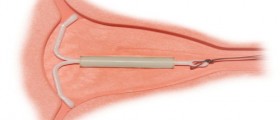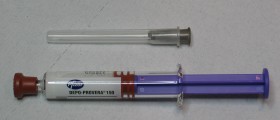
Emergency contraception is an effective way to prevent pregnancy after the unprotected sexual intercourse had occurred. Emergency contraception is used only occasionally, when all other contraceptive methods fail. It is important to understand that this type of contraception should not be used on the regular basis as a standard contraception method. Most commonly, women will consider using a drug or device to prevent pregnancy that may occur if a condom break, if a diaphragm slips out of place, after a sexual assault or if they have failed to abstain from having sex on their fertile days. Emergency contraception comes in two major forms: intrauterine devices (the same used as primary contraceptive method) or emergency contraceptive pills.
How is it taken?
Emergency contraceptive pills, also known as the morning-after pills, are in the United States available over-the-counter for all women older than 17. The morning-after pills are safe and effective way to prevent pregnancy from occurring and they are based on the same hormones found in standard birth control pills or intrauterine devices. However, the quantity of these hormones is much higher in emergency contraceptive pills, than in standard pills. They need to be taken within the first 72 or 120 hours following the unprotected sex, in order to be effective. Emergency contraceptive pills are taken in two doses, 12 hours apart. The first dose is taken within 72 hours, and the second dose is taken 12 hours later. Emergency intrauterine devices need to be inserted in u p to 5 days after the unprotected sex. They can be left in place for up to 10 years, and they are effective in 99,9% of cases, even as an emergency contraceptive method.
How it works?
Emergency contraception works by preventing the release of an egg from the ovaries, and disrupting the process of fertilization by affecting the egg or the sperm. Hormones found in these pills or devices can also thicken the cervical mucus, which makes it hard for sperm to reach the uterus. In addition, these hormones can make the lining of the uterus very thin and unsuitable for implantation of the embryo. It is important to understand that emergency contraception works to prevent pregnancy and not to abort the existing one. It is not the same thing as the abortion pills. There is no way to find out if a pregnancy would have otherwise occurred, or to detect it within first 120 hours using a pregnancy test. Emergency contraception is effective in almost 100% of cases if it is taken as directed.

















Your thoughts on this
Loading...